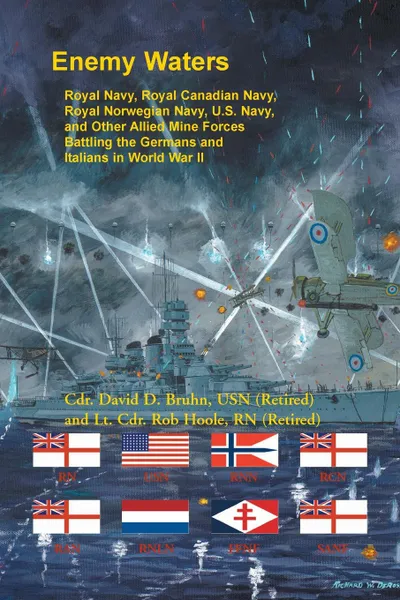Enemy Waters. Royal Navy, Royal Canadian Navy, Royal Norwegian Navy, U.S. Navy, and other Allied Mine Forces battling the Germans and Italians in World War II 12+
Автор: David Bruhn,
Rob Hoole
2019
434 страницы
Категория: Литература на иностранных языках
ISBN: 9780788458729
Язык: Английский
📗 When Britain declared war on Germany in September 1939, the Royal Navy was deficient in minelayers needed to try to hold enemy forces at bay and out of its home waters. Turning first to the Merchant Navy, it requisitioned a liner and two ferries for this use, and a dozen destroyers and submarines were also converted to carry mines. Later, six fast minelaying cruisers joined the force. When Italy entered the war on the Axis side in June 1940, the situation became dire. As U-boats continued to sink shipping in the North Sea and around the British Isles, the Italian Fleet and German and Italian Air Forces controlled the central Mediterranean. Royal Air Force Bomber and Coastal Command planes took up mining, as did old Swordfish biplanes of the Fleet Air Arm. Joining in the fight were units of exiled navies, including the Dutch minelayer Willem van der Zaan, Free French submarine Rubis, and the Norwegian 52nd Motor Launch Flotilla. U.S. Navy mine forces supported the invasion of French North Africa in late 1942, subsequent landings in Italy, and the invasions of Normandy and southern France. The Canadian 31st Minesweeping Flotilla was at Normandy, and joined in later operations. Enemy Waters puts readers in the heart of the action. One hundred and forty-five photographs, maps, and diagrams; appendices; and an index to full-names, places and subjects add value to this work.
Мнения
